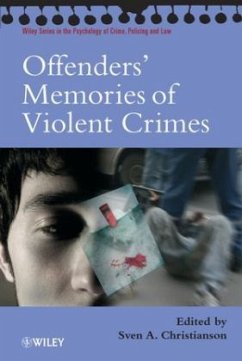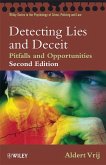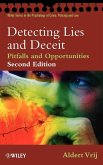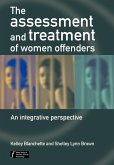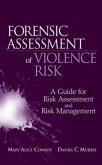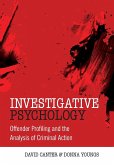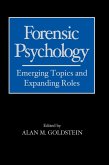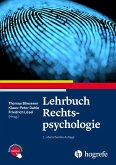Violent offenders often claim amnesia in order to avoid punishment. Investigators and juries often need to determine how genuine claims of amnesia are. Offenders with amnesia are not able to enter a plea; there are implications for the interview strategies employed by the police.
Claims of amnesia for violent and sexual crimes are extremely common as guilty suspects often allege memory loss to avoid punishment. The important issue in each case then becomes whether such memory loss is genuine or feigned. Offenders' Memories of Violent Crimes takes a different approach to the subject by focussing not on eyewitness or bystander testimonies, but on the testimonies of the offenders, or, more specifically, offenders' remembering and telling about their violent crimes.
The book will explore offenders' memories with particular emphasis on theory and empirical research on such topics as memorial patterns in perpetrators, instrumental and reactive offenders, crime-related amnesia, crime-related brain activation, detecting lies and deceit and interviewing techniques. Organised into three parts: theoretical aspects of offenders' memories; evaluating offenders' memories and interviewing offenders, this timely volume will further the understanding of criminal behaviour. It will be essential reading for psychologists, psychiatrists, psychotherapists, social workers and all students and practitioners of clinical psychology, forensic psychology, and law enforcement.
Published in the Wiley Series in the Psychology of Crime, Policing and Law
Series Editors:
Professor Graham Davies, University of Leicester, UK,
Professor Ray Bull, University of Leicester, UK.
Claims of amnesia for violent and sexual crimes are extremely common as guilty suspects often allege memory loss to avoid punishment. The important issue in each case then becomes whether such memory loss is genuine or feigned. Offenders' Memories of Violent Crimes takes a different approach to the subject by focussing not on eyewitness or bystander testimonies, but on the testimonies of the offenders, or, more specifically, offenders' remembering and telling about their violent crimes.
The book will explore offenders' memories with particular emphasis on theory and empirical research on such topics as memorial patterns in perpetrators, instrumental and reactive offenders, crime-related amnesia, crime-related brain activation, detecting lies and deceit and interviewing techniques. Organised into three parts: theoretical aspects of offenders' memories; evaluating offenders' memories and interviewing offenders, this timely volume will further the understanding of criminal behaviour. It will be essential reading for psychologists, psychiatrists, psychotherapists, social workers and all students and practitioners of clinical psychology, forensic psychology, and law enforcement.
Published in the Wiley Series in the Psychology of Crime, Policing and Law
Series Editors:
Professor Graham Davies, University of Leicester, UK,
Professor Ray Bull, University of Leicester, UK.

